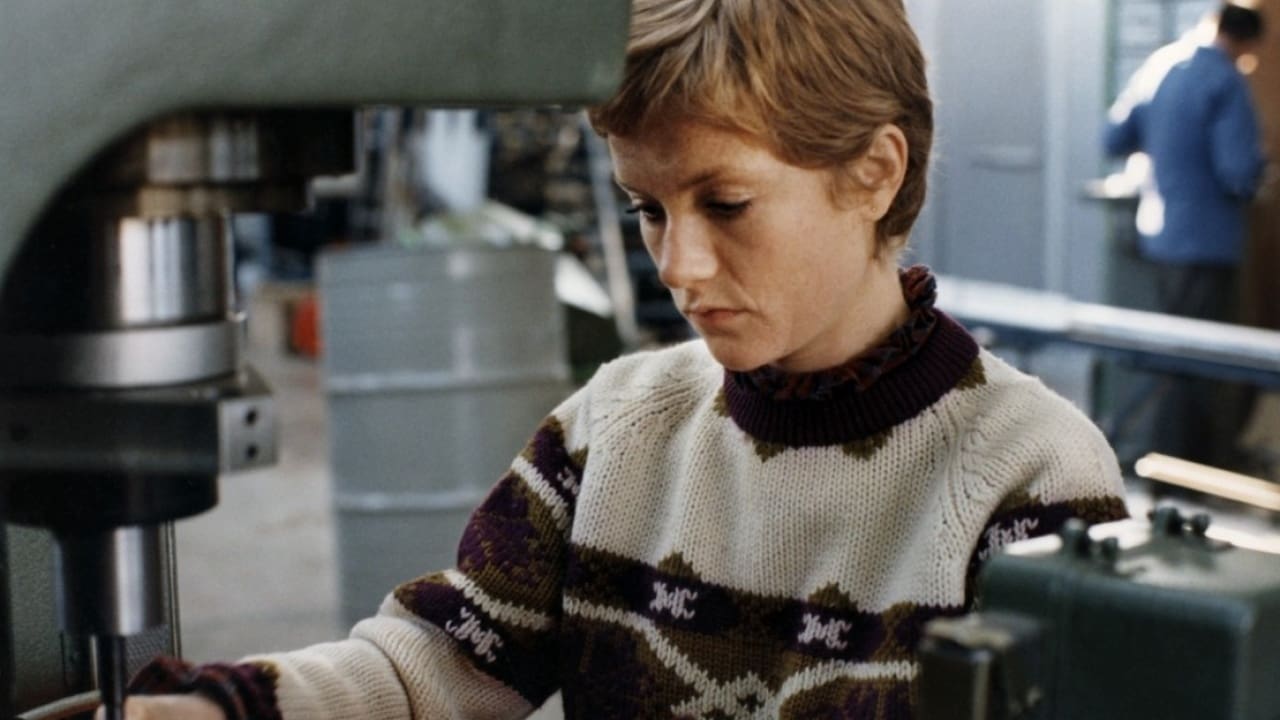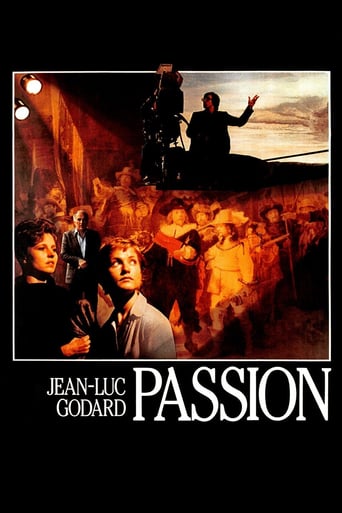

I like the storyline of this show,it attract me so much
... View MoreDon't listen to the negative reviews
... View MoreIn truth, there is barely enough story here to make a film.
... View MoreI think this is a new genre that they're all sort of working their way through it and haven't got all the kinks worked out yet but it's a genre that works for me.
... View MoreMy theory is this: you have to watch this film after midnight, after all the cares of the day are forgotten (the phone call you forgot to make, the stuff you didn't pick up at the store) and you can relax completely. Just let the scenes unspool before you, the beautiful images wash over you. Godard has made a kind of masterpiece, under trying circumstances--he wanted Vittorio Storaro as DP, and had to call in Coutard, with whom he was no longer friendly--and his efforts were not crowned with commercial success; the picture was a flop.Jerzy's character is fascinating; he seems to take inertia to new heights. Imagine refusing to shoot because the lighting is wrong. Fritz Lang (and Godard himself, of course) would never have used that silly excuse: they would have worked around any problems on the set. Miss Lucachevski, the tall and very elegant script-girl, says that she is tired of working on a production that produces nothing and we can feel her frustration. Jerzy asks her to read a passage from Les Miserables about Enjolras's passion, then he makes the bloodless remark about bloodless times I've used in the summary. Radziwilowicz is a pudding-faced actor who shows us little of what he's feeling. Hanna Schygulla on the other hand is extraordinarily animated and focused as the uneasy female angle of the triangle with Michel and Jerzy. She is photographed better here than Fassbinder managed to shoot her in his films. MacCabe's book on Godard tells how she came to work one day after a night of excess and Godard insisted on shooting her with every wrinkle lovingly recorded. Whatever, she is gorgeous, every bit as striking as Anna Karina, or even Jane Fonda, to name two of Godard's leading ladies.The enactments of the paintings are ravishing, worth the price of the video in themselves. Myriem Roussel posing on the pool deck for the Ingres Bather is stunning, the entry of the crusaders into Jerusalem will delight you. A knockout.
... View MoreVery little in this film can honestly be said to grab the attention for long, unless perhaps, you are a Godard completest. An art historian might appreciate the messages hidden within the old master painting being turned into a movie by the director at the centre of the piece. For the rest of us it's hard to follow threads of the various partially connected stories in which largely unappealing characters bicker, berate and bed one another. Jerzy a Polish movie director, has literally 'lost the light' in his big budget production. His efforts are hamstrung by news of Solidarity's emergent uprising in his native land, the financial demands of his producers and his involvement with two women : the owner of the hotel in which most of his film company lodge, and a dowdy sacked worker at her husbands factory. That's pretty well it. There's not much more. The images of the old masters Jerzy is attempting to turn into a film, although he seems to have little concept of exactly how, are nicely lit but the films exteriors around the promising location of Lake Geneva are drab, the interiors even worse and despite some big names among the cast there is little charisma in evidence. I've watched it twice and sadly 'Passion', an oddly inappropriate title in itself, made no more impression on the second viewing. The Godard of 'Pierrot Le Fou' (a film I loved) seems a long way from the Godard of 'Passion'. Other reviewers have clearly found a meaning and beauty that I have missed. But hey! If it floats your boat then thats good.
... View MoreIf one were to hold up a camera to life and to film for ninety minutes, the result would be, more than likely, a boring snapshot of the banal and mundane. These snapshots of life would have no narrative, would be disjointed and chaotic, for such is life. Godard's Passion struck me as just that, a snapshot of the banality of life, the disconnected, seemingly meaningless misadventures of ordinary people, captured in one moment of time. But of course, these are not ordinary people in ordinary circumstances, these are the creations of Godard's imagination, yet the presentation of the content of the film is without structure, narrative or any of the Hollywood conventions of 'good filmmaking'. I found the film compelling and intriguing; I wanted to know more about the people and the universe that they populated. The lack of narrative structure was not a negative factor in my enjoyment of the film, for the anarchic content was, of itself, enough to keep my mind from wandering away from it. Godard's reflexive jibes at cinema convention were acerbic and witty, carrying with them a tremendous knowledge of the mechanics of filmmaking. The story of Passion, what story there is, is subservient to the process of filmmaking and Godard's desire to subvert it. For me, that is what makes this film so entertaining.The influence of Godard's work on other filmmakers is probably most profound in European cinema where the role of the Auteur is, if not quite nurtured, respected. It was a delightful surprise for me when, having seen Passion, I began to draw connections between Godard's storytelling and popular TV comedy. The First Series of the BBC comedy 'The Office', by Ricky Gervais and Stephen Merchant, leapt to mind as I mulled over Passion. The non-structure of Passion is very much evident in The Office, where the stories unfold as snapshots and moments in time, captured, and heavily influenced by the presence of the cameras. The Office is probably the most original piece of TV comedy since Monty Python's Flying Circus, yet I can see the influence of filmmakers like Godard in its presentation. Although there exists an A plot, B plot and guest plots, typical TV structure, in The Office, it is the presentation that makes all the difference. If handled in a more traditional fashion, it is highly unlikely that The Office would ever have been made, never mind popular. Even the origins of The Office pay homage to the anti-structural approach of filmmakers like Godard. Conceived and performed as an adlib piece on a BBC director's course by Gervais and Merchant, it shined with originality and a deep knowledge of and healthy disrespect for, convention; much like Godard really.The success of The Office owes much to its originality and wit but also to the possibility that the audience is searching for a new experience in terms of storytelling both on television and film. The irony is that this type of storytelling has been with us since Godard and long before Godard. Perhaps the audience has finally caught up with the filmmakers.
... View MoreIt's not that I don't like arty films, I just found this so dreary. i can see why it may be of interest to a film-student, but to sit through it for entertainment purposes is certainly not recommendable! If you suffer from lack of sleep, check this out and it'll have you snoozing within no time at all. A christmas present for a friend you want to get rid of. In other words - pretentious crap.
... View More